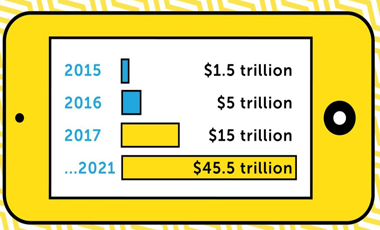The dawn of cryptocurrency regulation is upon us. Recently, the U.S. Securities and Exchange Commission (SEC), the Commodity Futures Trading Commission (CFTC) and FinCEN announced they will regulate cryptocurrency exchanges and Initial Coin Offerings (ICOs) to clamp down on market fraud and criminal finance.
Best practices for managing suitability compliance risk is a good news, bad news bedtime story in the financial services industry. The good news is that I am hard pressed to identify another area where both the global regulators and regulations, including, but not limited to, the FINRA, the SEC, MiFID, and the IOSCO, speak with one voice with respect to global statutes, rules and regulations. On a global basis, capital markets compliance is usually a patchwork of disparate requirements. However, the global requirements relating to suitability are nothing short of harmonious and work to support the actions of many firms for adopting and implementing a holistic compliance framework across the enterprise.
Anti-money laundering (AML) groups have historically lagged their fraud counterparts in the use of advanced analytics, due in large part to the heavy burden of model risk management processes borne by AML departments. However, mounting international sanctions, increasing payment volume, and painful enforcement actions are dictating that financial services firms look to new and better ways to ensure AML compliance. Robotic process automation (RPA) machine learning technologies are now being embraced by AML teams around the globe as they look for ways to improve both detection and operational efficiency.
Think about the last time you walked into a bank branch, or wrote an actual physical check. What about how often you use cash, compared to a few years ago. I think you could agree that most people living in large Western economies are doing all of those activities less than ever before. In this three part series, we’ll discuss the pros and cons of a cashless society. Don’t forget to read parts one and two before moving ahead!
It’s exciting to see NIST jumping into the blockchain fray since the U.S. – like other countries – clearly has to come to terms with the fact that cryptocurrency trading, ICOs, and more are here to stay, at least for the foreseeable future.
Think about the last time you walked into a bank branch, or wrote an actual physical check. What about how often you use cash, compared to a few years ago. I think you could agree that most people living in large Western economies are doing all of those activities less than ever before. In this three part series, we’ll discuss the pros and cons of a cashless society. Don’t forget to read part one before moving ahead!
Think about the last time you walked into a bank branch, or wrote an actual physical check. What about how often you use cash, compared to a few years ago. I think you could agree that most people living in large Western economies are doing all of those activities less than ever before. The data from various surveys supports this; for instance, roughly 40 percent of UK residents1 across various demographics believe that cash will be gone in 25 years. Despite this, the number of actual bills and coins in circulation is growing in the U.S!2
When it comes to data, our clients tell us that their challenges continue unabated. If we look across the entire financial crime landscape, this complexity stems from three main areas. While any one of these issues might be reasonable for a team to overcome, in combination they are difficult for financial services organizations and tend to be a major focus of concern in planning, operations, and resource allocation.







